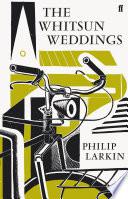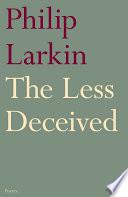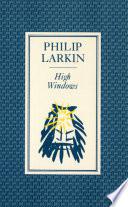Works
Famous Philip Larkin Quotes
Letter from Belfast ( 5 August 1953) http://fridaynightboys300.blogspot.com/2010/10/many-letters-of-philip-larkin.html to Monica Jones
Context: You know I don’t care at all for politics, intelligently. I found that at school when we argued all we did was repeat the stuff we had, respectively, learnt from the Worker, the Herald, Peace News, the Right Book Club (that was me, incidentally: I knew these dictators, Marching Spain, I can remember them now) and as they all contradicted each other all we did was get annoyed. I came to the conclusion that an enormous amount of research was needed to form an opinion on anything, & therefore I abandoned politics altogether as a topic of conversation. It’s true that the writers I grew up to admire were either non-political or Left-wing, & that I couldn’t find any Right-wing writer worthy of respect, but of course most of the ones I admired were awful fools or somewhat fakey, so I don’t know if my prejudice for the Left takes its origin there or not. But if you annoy me by speaking your mind in the other interest, it’s not because I feel sacred things are being mocked but because I can’t reply, not (as usual) knowing enough. … By the way, of course I’m terribly conventional, by necessity! Anyone afraid to say boo to a goose is conventional.
Source: Philip Larkin: Letters to Monica
Source: Philip Larkin: Letters to Monica
Source: Philip Larkin: Letters to Monica
Philip Larkin Quotes about life
Letter to Monica Jones, 22 October 1967
Letter to J.B.Sutton, 21 December 1942
Source: Letter to J.B.Sutton 30 October 1949
Source: "Aubade", Times Literary Supplement, 23 December 1977
Philip Larkin Quotes about love
“What will survive of us is love.
- from”
"An Arundel Tomb" (20 February 1956)
Variant: Our almost-instinct almost true:
What will survive of us is love.
Source: The Whitsun Weddings (1964)
"Love Songs in Age" (1 January 1957)
The Whitsun Weddings (1964)
Philip Larkin Quotes
“You know I don’t care at all for politics, intelligently.”
Letter from Belfast ( 5 August 1953) http://fridaynightboys300.blogspot.com/2010/10/many-letters-of-philip-larkin.html to Monica Jones
Context: You know I don’t care at all for politics, intelligently. I found that at school when we argued all we did was repeat the stuff we had, respectively, learnt from the Worker, the Herald, Peace News, the Right Book Club (that was me, incidentally: I knew these dictators, Marching Spain, I can remember them now) and as they all contradicted each other all we did was get annoyed. I came to the conclusion that an enormous amount of research was needed to form an opinion on anything, & therefore I abandoned politics altogether as a topic of conversation. It’s true that the writers I grew up to admire were either non-political or Left-wing, & that I couldn’t find any Right-wing writer worthy of respect, but of course most of the ones I admired were awful fools or somewhat fakey, so I don’t know if my prejudice for the Left takes its origin there or not. But if you annoy me by speaking your mind in the other interest, it’s not because I feel sacred things are being mocked but because I can’t reply, not (as usual) knowing enough. … By the way, of course I’m terribly conventional, by necessity! Anyone afraid to say boo to a goose is conventional.
“Poetry is an affair of sanity, of seeing things as they are”
Required Writing-Miscellaneous Pieces 1955-1982 Farrar Strauss 1984
Context: Poetry is an affair of sanity, of seeing things as they are, to recreate the familiar, eternalizing the poet's own perception in unique and original verbal form.
"The Mower," Humberside (Hull Literary Club magazine) (Autumn 1979) [12 June 1979]
Letter to Monica Jones (1 November 1951) as quoted in "Philip Larkin's women" (23 October 2010) http://www.guardian.co.uk/books/2010/oct/23/martin-amis-philip-larkin-letters-monica
Context: I think … someone might do a little research on some of the inherent qualities of sex – its cruelty, its bullyingness, for instance. It seems to me that bending someone else to your will is the very stuff of sex, by force or neglect if you are male, by spitefulness or nagging or scenes if you are female. And what's more, both sides would sooner have it that way than not at all. I wouldn't. And I suspect that means not that I can enjoy sex in my own quiet way but that I can't enjoy it at all. It's like rugby football: either you like kicking & being kicked, or your soul cringes away from the whole affair. There's no way of quietly enjoying rugby football.
“Deprivation is for me what daffodils were for Wordsworth.”
Interview with Miriam Gross, "A voice for our time" in The Observer (16 December 1979); republished in Required Writing: Miscellaneous Pieces, 1955-1982 (1983)
“Dear, I can't write, it's all a fantasy: a kind of circling obsession.”
Source: Philip Larkin: Letters to Monica
Source: Philip Larkin: Letters to Monica
Next, Please
The Less Deceived (1955)
“What was the rock my gliding childhood struck, / And what bright unreal path has led me here?”
Lines from an early poem, letter to J.B. Sutton, 16 April 1941
“Get stewed:
Books are a load of crap.”
"A Study of Reading Habits" (20 August 1960)
The Whitsun Weddings (1964)
"MCMXIV"
The Whitsun Weddings (1964)
Source: The Less Deceived (1955), Lines on a Young Lady's Photograph Album
“to start at a new place is always to feel incompetent & unwanted.”
Letter to Winifred Arnott, 7 October 1953
“I never think of poetry or the poetry scene, only separate poems written by individuals.”
Interview in The Review, published by Ian Hamilton (1972)
"This Be The Verse," High Windows (1974) [April ? 1971]
This Be The Verse (1974)



